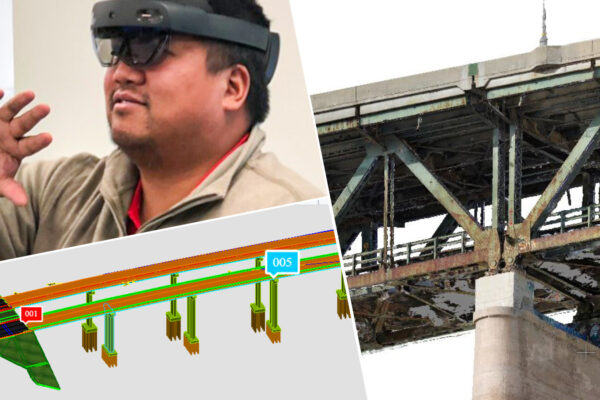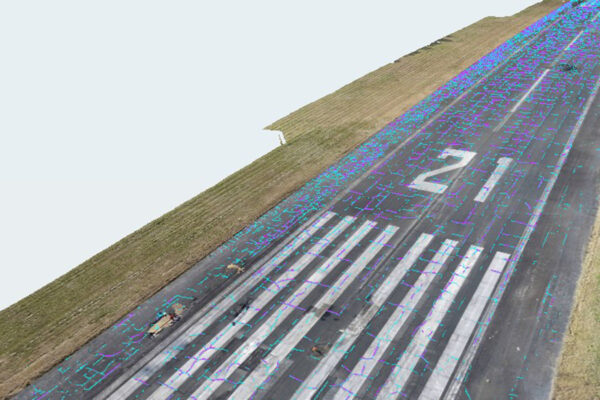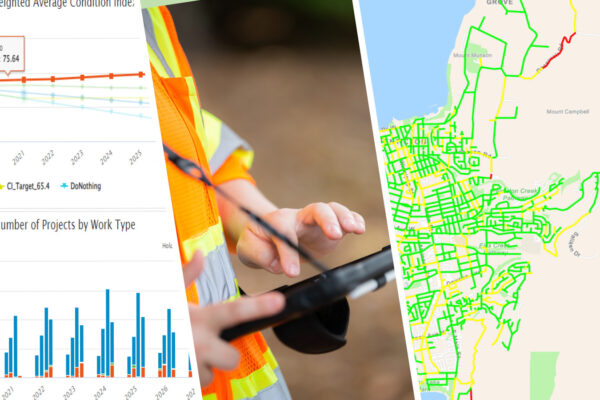Taking a Holistic Approach to ADA Compliance

The Americans with Disabilities Act (ADA) has been a cornerstone of promoting equal rights and equal access for people with disabilities since its enactment in 1990. However, for many communities, ensuring compliance has been an upward battle. With limited resources, agencies are often forced to address compliance updates and issues as they arise rather than taking a holistic approach that not only ensures legal adherence but also helps to promote inclusivity, social cohesion and economic growth.
Three of Benesch’s accessibility and ADA compliance experts came together to offer their tips for creating and implementing a holistic and comprehensive approach to ADA work in communities across the country. Here’s what they had to say:
Look at the Big Picture
Ines: Something I am always encouraging our clients to do is take a step back and look at the big picture. It’s tempting to approach ADA compliance as though it is a simple checklist to run through as quickly as possible. While that might seem like the easiest or most efficient approach, it can lead to problems in the long run – whether it’s missed elements, failed audits or accessibility issues for residents.
A holistic approach to ADA compliance requires a comprehensive evaluation of all aspects of a municipality, from public facilities and infrastructure to transportation and communication systems, and even urban planning processes. Rather than addressing accessibility as a series of isolated challenges, the holistic approach seeks to create an inclusive environment that seamlessly accommodates the needs of all residents and visitors, regardless of their physical or cognitive abilities.
Consider a Phased Approach
Amanda: And while we recognize that a holistic approach is ideal, we understand that it’s not always practical, especially when there are immediate issues to be addressed. In these cases, we recommend breaking down your plan into phases that can be tackled as funding becomes available—this is something our team really excels at as we often work with clients to prioritize accessibility needs and develop plans that make the work more manageable.
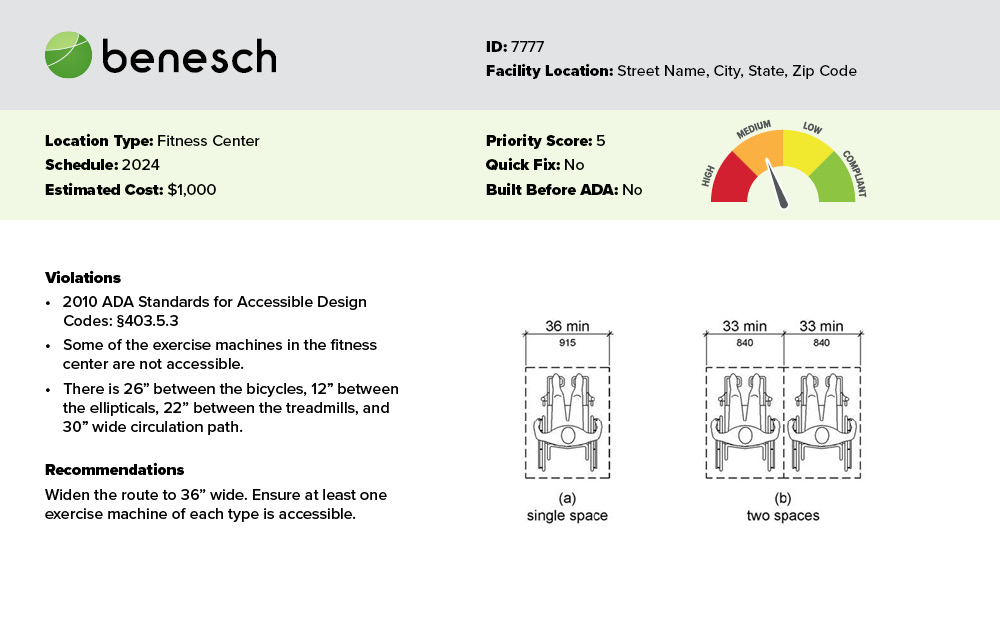
Measure Twice, Cut Once
Bryan: A key benefit of a holistic approach is that it proactively prevents issues from occurring in the first place. To that end, I highly recommend having a thorough construction plan review conducted. While your design plans may be fully compliant, some things can be lost in translation when it comes to construction. Getting another set of eyes on those plans can save you time and money in the long run.
Amanda: While it may seem like an extraneous step, it is so much easier to fix an issue before construction starts. The last thing we want for our clients is for them to discover that preventable construction mistakes made their new multi-million-dollar building not fully accessible.
Expectation vs. Reality
Bryan: I would also like to point out that staying ADA compliant and maintaining accessibility for all your community members is something that requires routine work. Even right after construction, we recommend having the work reviewed to make sure everything was built according to plan. Best case scenario, we don’t find any issues and the building will be set for years to come. Unfortunately, that doesn’t always happen. For example, the tile used on a bathroom wall could end up being thicker than initially designed for, making the restroom too narrow.
Of course, we hate to tell our clients that their beautiful, and expensive, new building has accessibility problems, but typically they would rather it come from us than a patron experiencing accessibility issues.

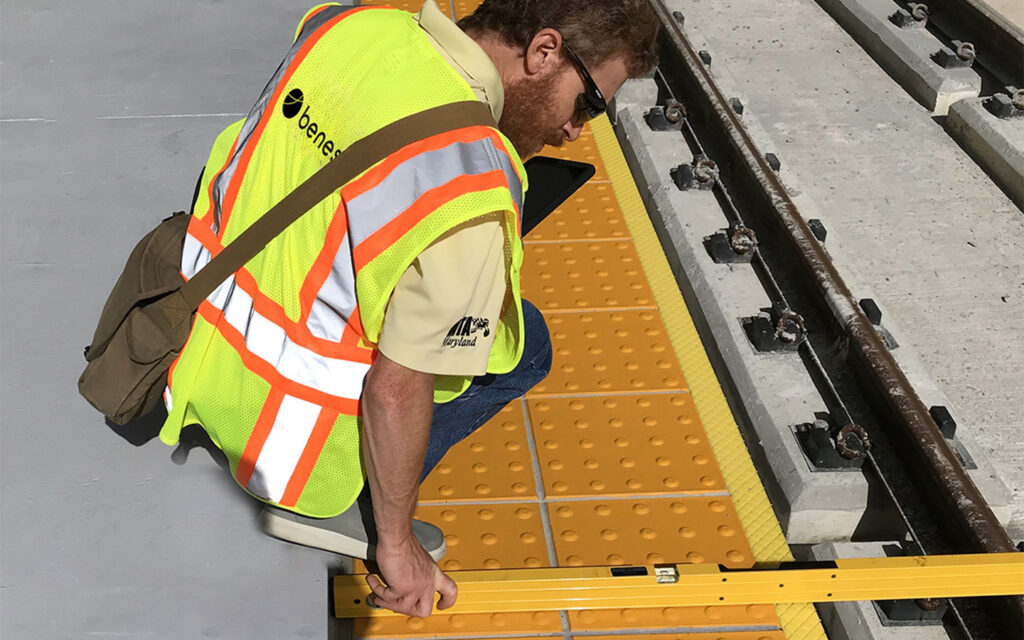
Celebrate the Successes
Ines: It’s also important to look at your successes and to use that as inspiration moving forward. Our team is dedicated to improving the lives of community members across the country and has been fortunate enough to help many agencies successfully develop and implement ADA Transition Plans. When implemented, these plans undoubtedly improve their communities for all.
Here are just a couple examples of our successes:
Apex, NC – Benesch led a comprehensive ADA Transition Plan for the Town of Apex, North Carolina. Our assessment included 16 facilities, 10 parks, 183 miles of sidewalk, 8 miles of greenways, curb ramps, crosswalks, intersections, a website review and a policy and procedures review. In addition, Benesch provided ADA training for Town staff, public surveys and significant citizen involvement efforts geared toward creating a holistic ADA Transition Plan. Learn more.
Lee County, FL – Benesch worked with LeeTran (Lee County Transit) to develop an ADA Transition Plan. It involved the assessment of approximately 1,750 bus stops, three transfer centers, four transfer support facilities and one park-and-ride facility for compliance of the Americans with Disabilities Act (ADA). The completed plan furthered LeeTran’s vision for improving its overall service by providing enhanced passenger amenities, accessible bus stops and transit service per ADA guidelines. Learn more.
Whether you’re looking to develop a complete ADA Transition Plan or simply need to reassess some of your facilities, working with Benesch to take a more holistic approach will often lead to better results and, in the long run, a more manageable solution to maintaining compliance.
After all, ensuring accessibility for all community members is not only a legal and ethical obligation but a vital aspect of fostering a thriving community.
Follow Benesch on LinkedIn for the latest news and insights from our experts.




